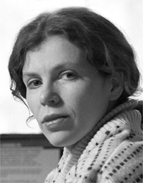 Yulia Latynina
Yulia LatyninaFormer Yukos CEO Mikhail Khodorkovsky has German Chancellor Angela Merkel to thank for his newfound freedom. She was the key figure who mediated with President Vladimir Putin over his early release. She personally requested that Putin pardon Khodorkovsky, and she also met with his mother.
Putin released Khodorkovsky for two reasons. First, foreign policy is all that matters to Putin. As for domestic policy, Putin rightly believes that the Russian opposition is toothless and poses no threat to his regime. Therefore, foreign policy is the one front on which he must remain vigilant.
Putin also realizes that he is approaching a red line, and that if he were to cross that line, he might end up the same way former Libyan leader Moammar Gadhafi did. Putin did not expect the situation with Ukraine to get so far out of hand, nor did he expect so many global leaders to skip the Sochi Olympics.
The Olympics are extremely important for Putin. Putin is dying to sit alongside fellow world leaders, then spit openly in their cups and enjoy watching them pretend that they didn't notice.
Now, however, he learns that the British prime minister and the French, German and U.S. presidents will not attend. Nor will the U.S. secretary of state or vice president either. To add even more insult, the U.S. delegation is headed by former Homeland Security Secretary Janet Napolitano who has allegedly had a long-term relationship with another woman. To add additional spite, the U.S. included two openly lesbian athletes in the delegation as well.
Putin realized that he was already drawing dangerously close to that red line — beyond which Gadhafi stood and where Syrian President Bashar Assad and Belarussian President Alexander Lukashenko now stand. Putin could not sacrifice Ukraine because the country is simply too important for him. He was also powerless to backtrack on the law concerning gays because his official position had been that it was not his doing. The imprisonment and recent pardoning of Khodorkovsky was the one major event that he personally controlled from start to finish.
The second important reason for Putin's decision was that the pardon served as a major bargaining chip, but he had to move quickly. The shelf life of that chip was rapidly diminishing since Khodorkovsky's prison term would have ended anyway in August 2014.
He had three options. First, Putin could have ordered a third criminal case against Khodorkovsky, but that would have been a foreign policy disaster by making him look like another Assad. Second, he could have simply let Khodorkovsky walk free in August, but that would have been perceived as a defeat for Putin.
Khodorkovsky was rapidly turning into the proverbial suitcase without a handle: You cannot really use it, but that seems a shame to throw it away. So Putin chose the third option: presenting this "broken suitcase" as a gift to Merkel, who had long been asking for it.
Now, six weeks before the Olympics, was the best time to issue Khodorkovsky's pardon. After all, announcing it one month before his prison term expired would have looked like a mockery, which would have deprived Putin of the PR points he needs so badly.
Well, at least now Merkel will probably come to the Olympics.
Yulia Latynina hosts a political talk show on Ekho Moskvy radio.
A Message from The Moscow Times:
Dear readers,
We are facing unprecedented challenges. Russia's Prosecutor General's Office has designated The Moscow Times as an "undesirable" organization, criminalizing our work and putting our staff at risk of prosecution. This follows our earlier unjust labeling as a "foreign agent."
These actions are direct attempts to silence independent journalism in Russia. The authorities claim our work "discredits the decisions of the Russian leadership." We see things differently: we strive to provide accurate, unbiased reporting on Russia.
We, the journalists of The Moscow Times, refuse to be silenced. But to continue our work, we need your help.
Your support, no matter how small, makes a world of difference. If you can, please support us monthly starting from just $2. It's quick to set up, and every contribution makes a significant impact.
By supporting The Moscow Times, you're defending open, independent journalism in the face of repression. Thank you for standing with us.
Remind me later.







